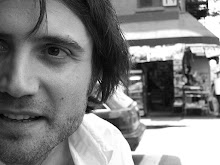The jazz world was taken aback this week by the announcement that the IAJE (International Association of Jazz Educators), an organization that grew from humble beginnings to become a major force in the jazz world, has declared bankruptcy and ceased operation. As jazz has become more institutionalized over the last few decades and has taken a firm place in the educational world, the annual IAJE conference became a major place to present music, knowledge, concepts and products. It became the Cannes of the jazz world, where for a meager $300 conference fee you could walk down the halls proudly wearing your conference badge and mingle with the biggest names in the biz, and perhaps feel like one of them for a few precious days every year.
Personally, I attended three of the conferences, one in Chicago as a high-school recipient of the IAJE/NFAA Clifford Brown/Stan Getz Fellowhip and two conferences in New York while I was a student in college. The first conference was any jazz-obsessed eighteen-year-old's dream... I probably hardly slept and ate over the course of those four days, eager to take it all in. The fellowship program offered many aspiring kids an incredible opportunity that I remain thankful for and do not wish to seem ungrateful for in what is to follow.
Over the years what I saw at the IAJE conventions increasingly bothered me and made me feel uncomforable, to the point where if I knew the convention was in New York I made it a point NOT to go out that week to hear any music. The conventions came to symbolize to me just how insular and out of touch jazz is with the mainstream world. Instead of coming together to celebrate the music and figure out ways of expanding its place in our world, I felt like I was seeing thousands of people there fight over the crumbs that exist in the current music marketplace. So few people seemed to be asking the deeper questions that plague jazz currently... What are the literally thousands of people who graduate every year from iniversity jazz programs worldwide going to do in a world largely indifferent to this music? Shouldn't we have been asking why people aren't listening to this music, why is there an ever decreasing number of performance venues that offer artists a real possibility of advancing the music and perhaps bringing it back to a place of social relevance again? How can we create real jazz listeners for the future, and make what we do more digestable to the general public without compromising the art form?
Eventually, any educational world artificially constructed to fill a void of opportunity will topple if it does not teach something relevant to the society in which it operates. From my limited knowledge of what was or was not happening at the IAJE conferences (I didn't go to one since 2000 or so) I think this depressing realization drew the most promising and vital people away from the organization and eventually led to its demise, probably along with some bad financial management, which the courts are now left to decide on. I do believe that teaching jazz in schools passionately and effectively does help create audiences for the future, and I am sure this originally motivated the people who created IAJE. However, I think it eventually was hijacked by a number of short-sighted individuals who saw the organization as a vehicle for self-promotion instead of a place to train effective educators and engage in a serious and broad-minded dialogue. I hope that the jazz world can learn a lesson from this and create something more effective and sustainable in the future.
Subscribe to:
Post Comments (Atom)





No comments:
Post a Comment